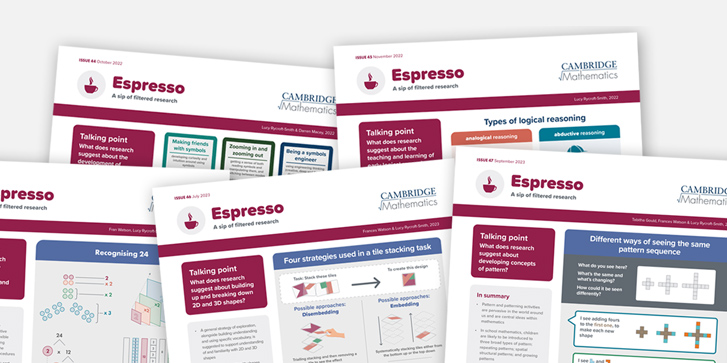
Espressos
For the last seven years Cambridge Mathematics has been publishing free-to-download Espressos – our small but intense draughts of filtered research on mathematics education, expressly designed with teachers in mind. Each Espresso considers one particular issue in mathematics education, and how the latest good-quality research can provide helpful guidance or further reading. Here are our recommendations for Espressos which could support your use of M.A.T.H. Mummy Mayhem.